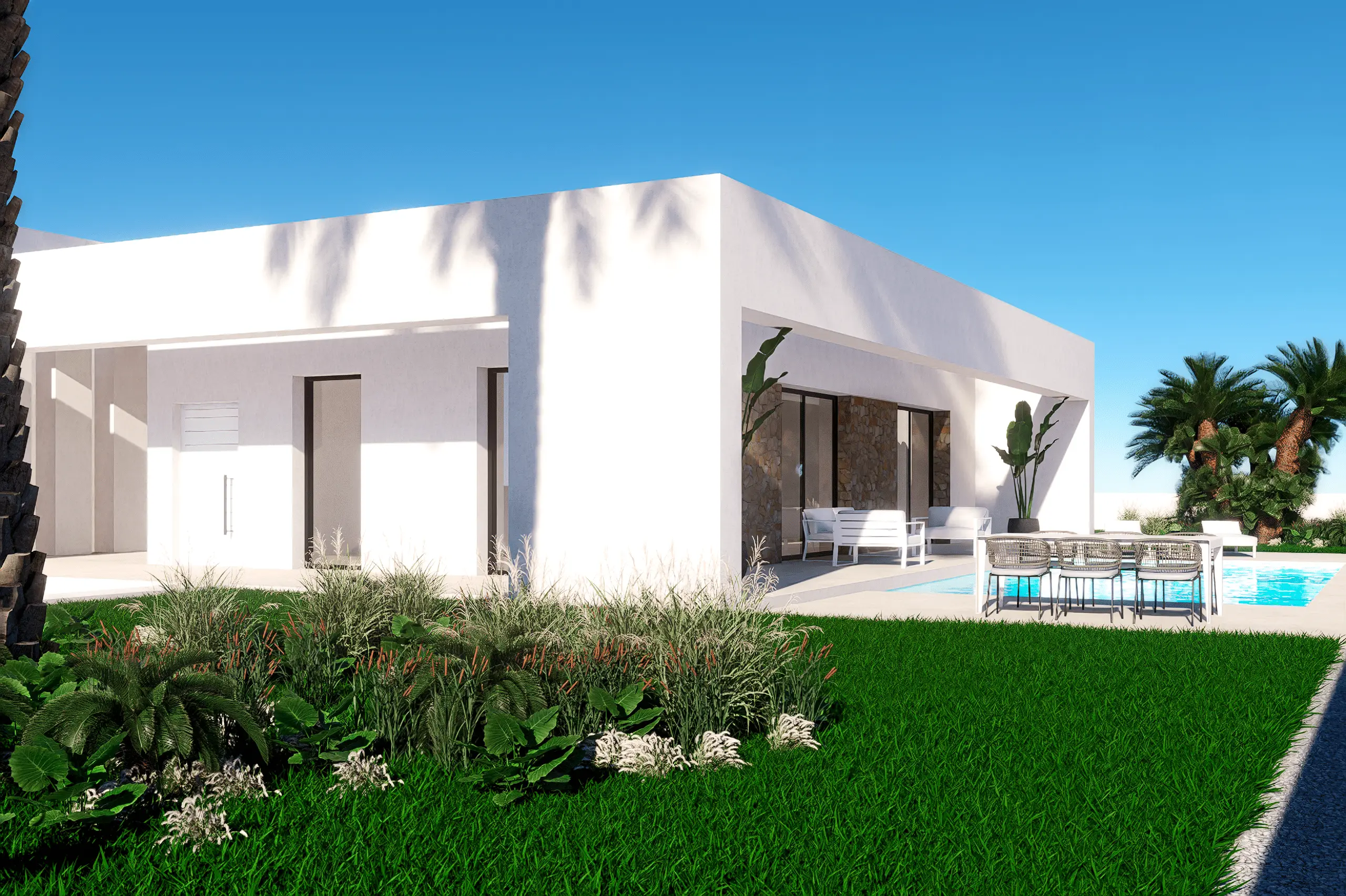Choose buy new house for housing is a popular choice in the property market. This process requires good planning and knowledge on a number of key issues. The interaction between legal, financial and personal aspects is essential. Knowing the benefits and associated risks facilitate informed decision-making throughout the purchasing process.
Pre-purchase considerations
The decision to acquiring a new home requires detailed analysis of several variables that affect both personal finances and the purchase decision itself. It is not just a matter of visualising the property, but to establish a solid framework before starting the process.
Assessment of the current real estate market
Up-to-date knowledge of the real estate market is crucialwhich can vary significantly from one region to another. This involves looking at trends in prices, demand, and supply. Factors to take into account include:
- Price analysis: Investigate how the price of housing in the area of interest in recent years.
- Demand trends: Identify whether it exists high demand in the selected area, which could affect the availability of property.
- Future promotions: Be aware of new housing developments or new building developments that may arise, which may influence the purchasing decision.
Advantages over second-hand housing
Buying a new house offers numerous advantages compared to second-hand properties. Among the most prominent are:
- Constructive conditions: The guarantee that the house complies with current regulations. and energy efficiency.
- Possibility of personalisation: The option of adapting spaces and home finishes to personal preferences during the construction phase.
- Lower maintenance costs: New home ownership involves minors technical and maintenance problems in the early years, in contrast to what was is often the case with older dwellings.
- Common areas and services: Most of the promotions for buying a new build home comes with common areas that can offer a variety of services and amenities.
Legal and financial aspects
The purchase of a new house involves a series of legal and financial considerations which are crucial to ensure a safe and successful transaction. It is essential to be clear on every aspect of legality and costs, as well as the financing options available.
Contract of sale
The The contract of sale is one of the most important documents in the process of acquiring a home. This document formalises the agreement between the buyer and the seller, establishing the conditions of the sale. It shall include:
- Detailed description of the property.
- Agreed price and method of payment.
- Delivery times and conditions for the completion of the work.
- Rights and obligations of both parties.
Also it is recommended that the buyer carefully review all terms and conditions of the contract. and, if necessary, seek legal advice to avoid surprises in the future. A well-drafted contract protects both parties and minimises the risk of future conflict.
Associated costs and taxes
Expenditure when buying a newly built house are not limited to the purchase price. There are a number of expenses and taxes that need to be considered in the total budget. These are some of the most relevant:
VAT and Stamp Duty
Value Added Tax (VAT) is a cost that the buyer must bear when purchasing a new home. Generally, the VAT applied is 10% of the price of the property. On the other hand, the Stamp Duty (Impuesto sobre Actos Jurídicos Documentados) is applied at the signing of the deed of sale and its percentage may vary depending on the autonomous community.
Notary and registration fees
Notary fees include the fees of the notary who is responsible for drawing up and formalising the public deed. These costs are variable and depend on the complexity of the contract and the price of the property.
As for registration fees, they are those which are generated in order to register the new property in the Land Registry. This step is crucial for the purchase to be officially recognised and to protect the rights of the new owner.
Mortgages: options and advice
When buying a new house, One of the main sources of financing is mortgages. There are different options for the buyer to consider in order to secure the necessary funding.
Types of mortgages available
In the Spanish market there are several types of mortgages:
- Fixed mortgage: The interest rate is set at the beginning of the loan and remains constant throughout its duration.
- Variable mortgage: The interest rate may change over time, usually based on a benchmark such as Euribor.
- Mixed mortgages: They combine a initial fixed-rate period followed by a variable-rate period.
Review of mortgage conditions
Before signing a mortgage, it is essential to review in detail all conditions accompanying it. This includes:
- Interest rate and its evolution.
- Commissions for opening, cancellation or modification.
- Clauses of early maturity and renegotiation.
A proper analysis of each of these elements enables the buyer to make more informed decisions and avoid unsustainable financial commitments in the future.
Process: buying a new house
The process of The purchase of a new home involves a number of steps that require attention and planning. From initial enquiry to completion of the purchase, it is critical to follow each step to ensure a successful transaction.
Research available promotions
Before embarking on the purchase, it is essential to investigate different housing developments The market for new-build properties. Buyers should consider a number of factors when consider the options available:
- Location: Analysing the area in which the promotion in terms of accessibility, nearby services and the general environment.
- Characteristics: Assessing the types of dwellings, layouts and whether they are adapted to the requirements and buyer preferences.
- Reputation of the promoter: Research on the developer's track record, their previous projects and the satisfaction of the owners of these properties.
- Conditions of purchase: Review the conditions offered for the purchase of the property, such as down payments, instalments, and possible discounts or benefits.
Phases of the purchasing process
Once the promotions of interest have been identified, the purchase process proceeds via several decisive phases.
Signing of the deposit contract
The first relevant phase in the purchase is the signing of the earnest money contract. This document establishes a commitment between the buyer and the seller, in which the buyer makes a down payment to reserve the property. This payment can vary, but is normally a percentage of the total price of the property. The earnest money contract sets out the intentions of both parties. and the conditions under which the purchase will be made. It is essential to read the contract in detail to know the rights and obligations, as well as the conditions for termination in the event of non-compliance with the agreement.
Private purchase contract
Once the earnest money contract has been signed, the next step is the signing of the private purchase contract, which formalises the transaction. This document must include essential information, such as:
- Detailed description of the propertyincluding measurements and characteristics.
- Agreed selling price and manner in which payment is to be made.
- Key dates, such as the start of construction and delivery of housing.
- Rights and obligations of both the buyer and the seller.
It is highly recommended legal advice during this phase, to ensure that all aspects are clearly stipulated and potential risks are minimised.
Public deed and handover of keys
Finally, when the dwelling has been completed and the agreed conditions are met, the process culminates with the signing of the public deed before a notary. This is a crucial step that formalises the transfer of ownership. from the seller to the buyer. At this point, the keys are handed over, which allows the new owner to access their home for the first time. It is essential that this act verifies that everything is in order, and to record any concerns or aspect to be clarified before finalising the operation.
Advantages of new-build housing
Buying a new house has many advantages that can be very attractive to prospective owners. From the possibility of personalisation to the guarantees underpinning construction, These types of properties offer significant benefits that are worth considering.
Personalisation and design
One of the main advantages of buying a new house is the possibility of personalising the home. according to the buyer's preferences. Often, The opportunity to select finishes, paint colours and room layouts is provided, allowing the homeowner to be involved in the design of their new home. This personalisation not only results in increased comfort, but can also influence the resale value of the property.
Developers often offer a range of options, from the type of flooring to the choice of kitchen and bathrooms. This decision-making ability allows for greater buyer satisfaction, as the final home is truly tailored to the buyer's needs and tastes. Customisation can also include the possibility of minor structural changesprovided that the viability of the original construction project.
Energy efficiency and technology
Newly built homes are usually designed according to the latest energy efficiency standards. This means that owners can benefit from reduced energy costs, as these properties are equipped with modern systems that optimise consumption. These technologies include thermal insulation systems, double-glazed windows and efficient boilers, which contribute to a lower environmental impact and a more responsible use of resources.
It is also common for these properties to incorporate technological advances, such as home automation systems, and which allow greater convenience by controlling lighting, climate control and home security via mobile devices. This type of innovation not only improves the quality of life, it also represents a long-term investment, as it facilitates access to more sustainable housing. and environmentally responsible.
Choosing the right promoter
Selecting a reliable promoter is essential to ensure a satisfactory shopping experience. and avoid potential problems in the future. The right choice can have a significant influence in the process of acquiring a new home.
Verify the reputation of the promoter
Reputation of the promoter is a key issue that needs to be carefully considered. In order to do so, it is necessary to investigate various aspects, such as:
- Project history: Analysing the previous works completed by the developer can give a clear picture of its track record and quality of construction.
- Feedback from previous customers: Consult opinions and experiences of other buyers helps to form an opinion on the reliability and professionalism of the promoter.
- Certifications and awards: Check whether the company has industry certifications or recognitions can be an indicator of quality and commitment.
Importance of communication with the promoter
Establishing fluid communication with the promoter is key throughout the purchase process. The level of attention and response received can be indicative of the seriousness and involvement of the company. Some points to bear in mind are:
- Accessibility: Evaluate how easy it is to contact the developer, whether by email, telephone or in person, is essential.
- Transparency: A reliable promoter must provide clear and accurate information on the status of the work and any changes that may arise.
- Resolution of doubts: The willingness to answer questions and clarify any concerns demonstrates good customer care, which is essential in this major investment.
Visiting previous works of the developer
Visiting projects already completed by the developer makes it possible to assess the quality of the constructions. and the final finish of the dwellings. During these visits, it was possible to different aspects can be considered:
- Quality of materials used: Close observation of the finishes and materials in finished works gives a clear indication of the level of quality that can be expected.
- Design detail: Attention to detail in architectural design and planning is also an aspect that can be assessed in these tours.
- State of conservation: Analysing how properties have been maintained over time provides valuable information on the durability of the developer's constructions.
Zones and location of the dwelling
The location of a house is a crucial element when making purchasing decisions. This factor not only influences the owners' quality of life, but can also affect the future value of the property. It is important to consider various elements related to location.
Factors to consider in siting
Accessibility and transport
One of the The key issue when assessing the location of a new housing development is accessibility. Good access to main roads and public transport improves the quality of daily life.
Good connectivity not only saves time, but also increases comfort in managing daily activities. Consideration of these factors can make a big difference in choosing the ideal location.
Services and amenities nearby
Proximity to essential services is another significant aspect. When buying a property, it is advisable to check the availability of:
- Educational establishments such as schools and colleges, which are essential for families.
- Health centres and hospitals in case of medical emergencies.
- Supermarkets and food shops to facilitate day-to-day shopping.
- Recreational areas, such as parks and playgrounds, that bring quality of life.
It is also relevant that the area has a cultural and leisure offer, such as cinemas, theatres and restaurants, which enrich the experience of living in a community.
Future projects in the area
When considering the purchase of a new home, it is essential to research the development plans in the area. Urban development projects can affect both property values and the quality of life of residents.. Some aspects to consider include:
- The construction of new infrastructure that improve access and connectivity, such as roads, bridges or public transport stations.
- The development of new shopping and leisure areas, potentially increasing the dynamism of the environment.
- Expansion plans residential areas that may influence population density, generating changes in the local environment.
Understanding the future of the area not only helps to evaluate the current purchase, but also to project the growth and development of the property, ensuring a sustained or increasing value over time.










